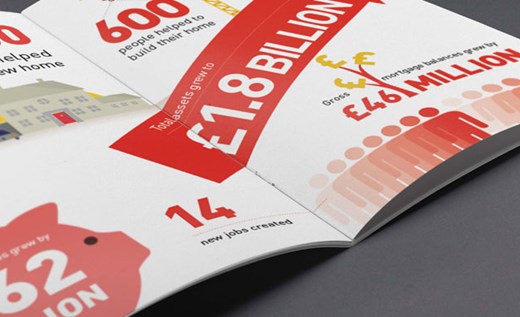Latest Ulster University House Price Index shows cost of living crisis impacting housing market activity
The cost of living crisis, interest and mortgage rate increases, and the ever-increasing economic and political uncertainty across Northern Ireland are appearing to slow activity in the housing market, according to the latest research from Ulster University.
The cost of living crisis, interest and mortgage rate increases, and the ever-increasing economic and political uncertainty across Northern Ireland are appearing to slow activity in the housing market, according to the latest research from Ulster University.
Findings from the Quarterly House Price Index show that despite a further quarter of consecutive house price growth, rising consumer costs and interest rates are resulting in the continued squeeze on household budgets, and this has begun to impact market activity with a third of estate agents reporting a reduction in new enquiries within selected market areas between Q1 and Q2 in 2022.
The report also found that while 86% of agents anticipate prices either remaining largely the same or having ‘softer’ price inflation over the next three months, the Northern Ireland housing market is approaching a peak in activity. Demand and recurring supply challenges remain, however the longer-term picture projects a fall in transaction levels, with inflationary pressures and rising consumer costs expected to have a greater impact upon the local housing market.
The Quarterly House Price Index, produced by Ulster University in partnership with the Northern Ireland Housing Executive and Progressive Building Society, analyses the performance of the Northern Ireland housing market during the second quarter of 2022 (April - June).
Other key report findings include:
- Quarterly house price growth of 3.6% relative to Q1 2022, with annual growth of 5.6% compared to Q2 2021. The average price stands at £205,628.
- The terrace / townhouse sector exhibited the highest annual price change of 6.9% compared to Q2 2021 with the average price now standing at £138,942;
- The semi-detached sector showing a comparable annual price growth of 6.3% with the average price now £187,861;
- The detached sector displayed annual price growth of 4.6% and the average price is now £291,071;
- The apartment sector showing the lowest annual growth relative to this time last year, of 2.8% with the average price now £147,594.
Introducing the findings, lead researcher Dr Michael McCord, Reader in real estate valuation at Ulster University, said:
“The housing market this quarter continues to show signs of price growth though at a rate which is diminishing relative to both quarterly and annual prices changes seen since the end of the lockdown periods. The tailwind that has been in the market post-pandemic, buoyed by strong levels of demand, appear to being to be subsiding.
“With strong headwinds ahead in terms of inflationary pressures, the cost of living crisis, interest and mortgage rate increases, and the wider political and economic uncertainty, there is increasing uncertainty regarding the stability future pricing levels. The supply crunch seems to have been a key factor propping the housing market up, and this may serve to ‘soften’ any potential correction with the market returning to long-term and more normalised levels of activity into the second half of 2022.”
Ursula McAnulty, Head of Research at NI Housing Executive, which commissions the research, said:
“The strong house price growth witnessed over 2021 continues, albeit at a slower rate, into 2022. However, there are emerging signs of purchaser confidence falling, including a decline in purchaser inquires. With the Bank of England predicting inflation rising to 10% over 2022, the cost of living crisis looks set to continue to impact households in Northern Ireland. The extent to which the lack of supply will temper the effect on house prices remains to be seen, although inevitably there will be more stability in house prices over the remainder of 2022.”
Michael Boyd, Deputy Chief Executive and Finance Director at Progressive, said:
“Following a prolonged period of market vibrancy, momentum within Northern Ireland’s housing market has been maintained in Q2 2022 with a quarterly price growth of 3.5%, but with indicators that market activity levels are beginning to cool.
“As anticipated, the influencing factors of inflation and consecutive interest rate rises are expected to curb momentum in the period ahead, with a majority of agents expecting a dip in sales volume. Current market pricing is expected to be maintained, at least in the short-term, through heightened build costs and the continued supply-demand imbalance.
“As we enter the latter half of 2022, the consensus among agents predicts a return to a more stable market dynamic, with fewer sales enquires and purchases expected in the next three months. The longer term forecast of double-digit inflation predicted by the Bank of England for the autumn and the continued household squeeze will likely impact upon transaction levels with a more cautious purchaser landscape.”
To read the full report findings, visit: https://www.ulster.ac.uk/research/topic/built-environment/research-property-planning/housing-market-reports/house-price-index/

Speak to our team today
We’d love to talk you through the mortgage process and help you find a suitable product. For more information or to apply for an account, you can call us, email us, pop into one of our 11 branches. We look forward to hearing from you.



